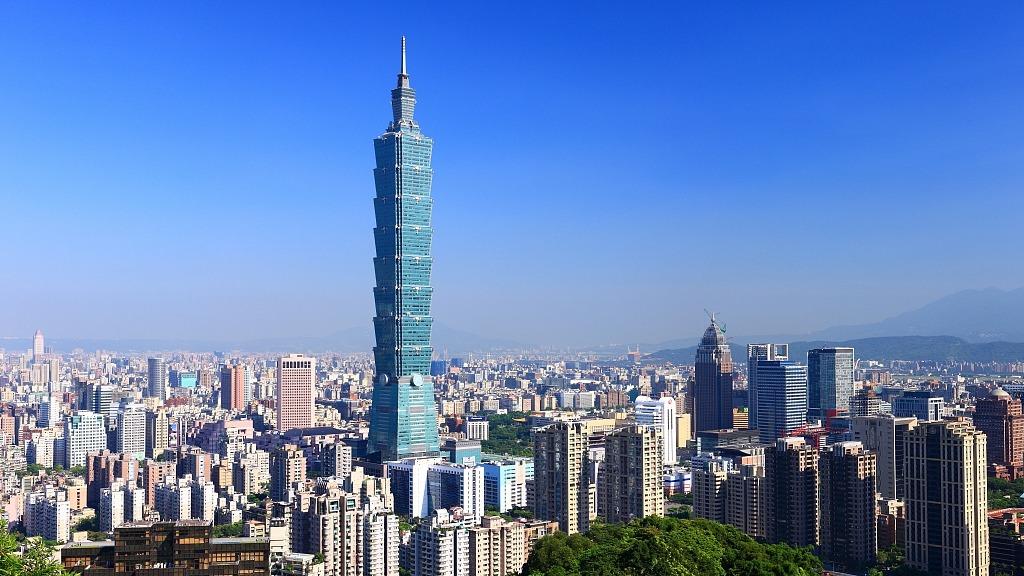 This undated photo shows the Taipei 101 skyscraper in Taipei, China's Taiwan. (PHOTO / XINHUA)
This undated photo shows the Taipei 101 skyscraper in Taipei, China's Taiwan. (PHOTO / XINHUA)
BEIJING – Resolute measures will be taken to safeguard national sovereignty and territorial integrity, Beijing said on Friday after Taiwan's deputy leader Lai Ching-te made "stopovers" in the United States.
Lai, who is also Taiwan's ruling Democratic Progressive Party's 2024 leadership candidate, made "stopovers" in New York and San Francisco on both his way from and back to Taiwan while on a trip to Paraguay which ended on Thursday.
The foreign ministry said the US arranged two "stopovers" for Lai, which harmed the national sovereignty and territorial integrity of China and also sent the wrong signals to "Taiwan independence" separatists.
The US' decision to allow Lai to engage in political activities and promote "Taiwan independence" clearly exposes its persistent attempts to undermine the one-China principle and enhance its ties with Taiwan, the ministry said.
READ MORE: Lai's 'stopover': China urges US to honor one-China principle
The ministry urged the US to abide by the one-China principle and the three China-US joint communiques, and honor its commitment not to support "Taiwan independence", "two Chinas", or "one China, one Taiwan".
Taiwan's pro-reunification parties said Lai has sacrificed people's livelihoods in Taiwan, and his actions were strongly opposed by people from both sides of the Taiwan Strait
The US should cease any form of official exchanges with Taiwan, refrain from upgrading substantive relations with Taiwan, stop supporting the activities of "Taiwan independence" separatist forces, and stop hollowing out the one-China principle, the ministry said.
China must and will achieve reunification, and any attempts to hinder the process are destined to fail, it added.
Taiwan's pro-reunification parties and groups said in a joint statement on Thursday as Lai returned to the island that the "stopovers" were a political performance in which he attempted to win support from the US for his electoral campaign.
He has damaged cross-Strait relations and sacrificed people's livelihoods in Taiwan, and his actions were strongly opposed by people from both sides of the Taiwan Strait, they said.
Chung Chin, a former director-general of Taiwan's information office, said that Taiwan people do not welcome Lai's "independence" stance and they aspire to peace and development, not "independence" or war.
She said that the US sells arms to Taiwan only to create cross-Strait conflict, as it attempts to exhaust the mainland's strength and hinder its economic development.
Lai, 63, has previously called himself a "pragmatic worker" for "Taiwan independence". Last month he claimed that "entering the White House" was his aim, which led the US to immediately seek clarification from him.
ALSO READ: Relying on US for 'Taiwan independence' is just wishful thinking by Lai. his ilk
In a recent interview with Bloomberg Business Week, Lai claimed that Taiwan is a "sovereign, independent country".
Zou Zhiqiang, deputy secretary-general of the Alliance for China's Peaceful Reunification in the US, said a major attempt of Lai's "stopovers" was to seek interaction with high-ranking US officials, but he failed in this.
His statements overtly in support of "independence" have caused great concern in the US, which is worried that Lai will escalate cross-Strait tensions, Zou said.
The US views Lai as "uncontrollable" and fears that his approach, if he were to come to power, would diverge from that taken by the US, potentially leading to unexpected consequences for Sino-US relations, said Zou.
READ MORE: US 'stopover' damages Taiwan compatriots' interests, says official
As a result, Lai was not allowed to go to Washington, or meet with officials at Congress, the State Department or Defense Department, and even the chairman of the American Institute in Taiwan did not meet Lai when he arrived in New York, he said.
It showed that Lai's "visit" to the US was downgraded, as the US did not want the world to interpret his "stopovers" as some sort of breakthrough, he added.


